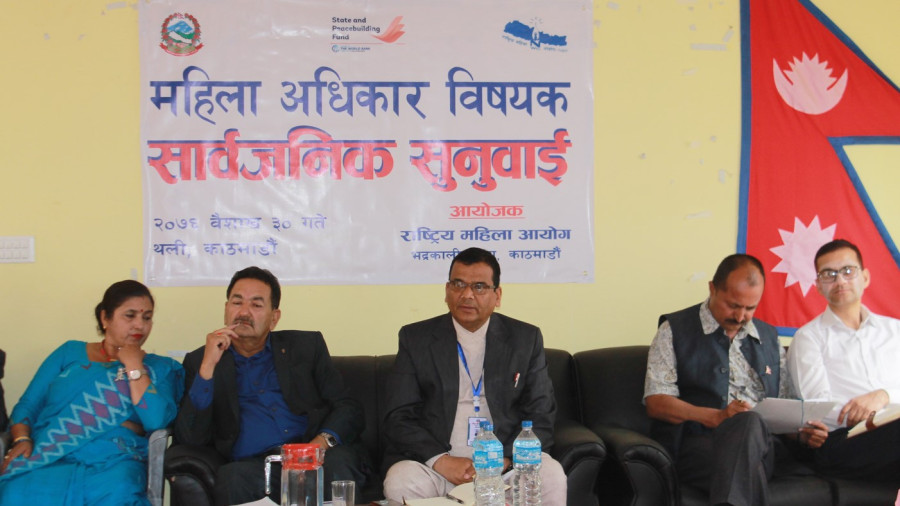Editorial
Rights-protecting bodies are supposed to keep the executive in check
The National Women Commission not having a chairperson since 2017 is a sign of institutional erosion.
The recent rape allegations against Krishna Bahadur Mahara, who has since resigned as speaker of the House of Representatives, have once again exposed how politicised Nepal’s entire system has become. In a functioning state, rights-protecting bodies—such as human rights commissions and women’s commissions—are supposed to keep the executive in check. Similarly, the police are supposed to uphold the rule of law, protect the citizens from harm and investigate any wrongdoing. Yet, in Nepal, such agencies have lost their way, caught in a web of political affiliations and vested interests. Then, unfortunately, it comes as no surprise that even when the speaker of the federal Parliament, essentially the fifth most important person in Nepal, is accused of manhandling and raping a woman, the National Women Commission remains hamstrung by political machinations, and is so ineffective that it cannot even issue a statement. More pathetically, the police, too, appeared to be awaiting instructions from their political masters. For far too long, constitutional bodies have been crippled because of the influence of politicians. But this can no longer continue. The integrity and impartiality of the bodies that check executive power must be restored.
Nepal is not new to the state having absolute power in all walks of life. During the times of absolute monarchical rule, it was common for all bodies of the regime to defer all decisions to suit those in power. It was for this reason that, after opting for a federal democratic republic system, the decision was taken to expand the number of commissions focusing on rights protection. The idea was to create separate commissions for all marginalised groups so that they could all receive a focus that the single National Human Rights Commission could perhaps not stretch itself to accommodate. The decision was also made to dismantle the national police force and restructure police units at the provincial level. But four years since the promulgation of the constitution, the seven thematic commissions remain hollow. Four do not have any office bearers, and three do not have chairpersons.
In Mahara’s case, it would usually fall upon the National Women Commission to build a case and pressure the police to investigate. High profile cases like Mahara’s or rape and murder victim Nirmala Pant’s are just the tip of this corrupt iceberg. The women commission’s toll-free hotline has received 70,000 phone calls regarding women in some kind of harm since it launched in December 2017. Moreover, in 2017 alone, 12,225 cases of domestic violence were registered with the Nepal Police. These numbers show the dire need for a fully functioning institution working to protect women and women’s rights. But the commission, formed in 2002 and upgraded with a larger mandate in 2015, has been without anyone at the helm since its last head, acting chairperson Bhagwati Ghimire, retired in October 2017.
The reason for this is baffling. Insiders have repeatedly mentioned how the major political parties are used to appointing members and chairs to such commissions on a sharing basis. So, when there are disagreements between the parties, the commissions are left empty. But this distributive system should not be occurring to begin with. It undermines the very purpose of such institutions. It certainly erodes any aspirations of fairness that the people may hold. Vacancies at the commissions must be filled immediately, and all appointments must be recommended by an impartial committee. The state itself is at risk if the politicians continue to control power.
***
What do you think?
Dear reader, we’d like to hear from you. We regularly publish letters to the editor on contemporary issues or direct responses to something the Post has recently published. Please send your letters to [email protected] with "Letter to the Editor" in the subject line. Please include your name, location, and a contact address so one of our editors can reach out to you.




 14.24°C Kathmandu
14.24°C Kathmandu














